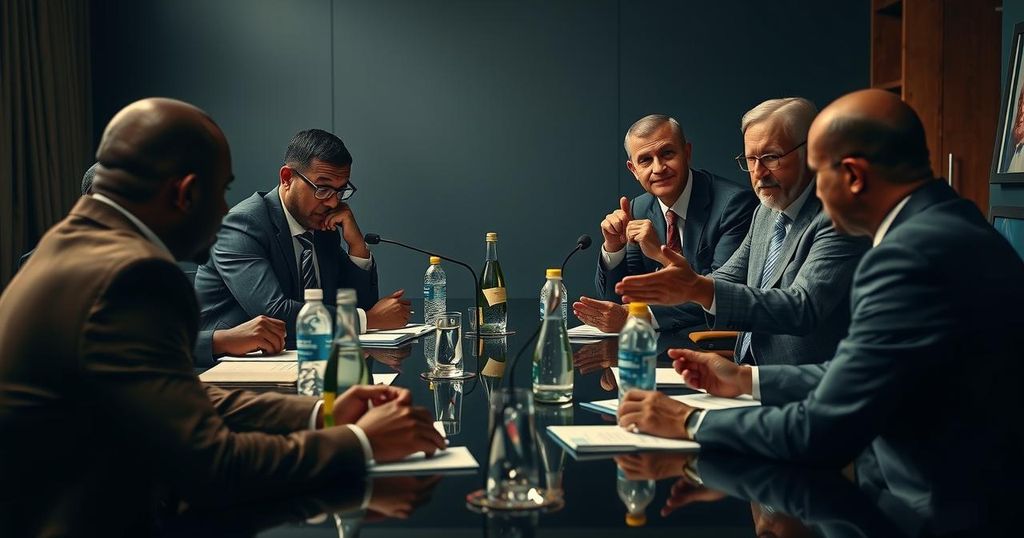The article examines the ongoing political turmoil in the DRC, highlighting the negative impact of current leadership on national unity and identity. It discusses the inflammatory rhetoric of leaders like Justice Minister Constant Mutamba and Foreign Affairs Minister Therese Kayikwamba, linking current issues to historical failures in leadership, particularly under the legacies of Nkrumah and Lumumba.
The Democratic Republic of Congo (DRC) has become emblematic of political strife and leadership failures, casting a shadow over its future. PLO Lumumba poignantly remarks that the story of the DRC is a narrative steeped in sadness, echoing Kwame Nkrumah’s vision for a unified Africa as the only way forward for the Congo. Presently, the DRC’s political climate is marked by inflammatory rhetoric from leaders such as Justice Minister Constant Mutamba, who, in an alarming display of favoritism, incited inmates at Munzenze Prison against the M23 group, framing them as enemies. Furthermore, Foreign Affairs Minister Therese Kayikwamba’s derogatory labeling of the M23 members as the “so-called Congolese” raises critical questions about identity within the nation, particularly considering her own complex heritage. Such divisions suggest a broader problem endemic to the DRC—an apparent failure of leadership. Nkrumah’s assessment of past leadership, particularly of Patrice Lumumba and Joseph Kasavubu, poses a stark contrast to the current regime. Lumumba’s legacy stands as the last emblem of true leadership, while the subsequent leaders have been viewed as pawns of foreign interests, perpetuating a cycle of division and mistrust in the community. As the attitudes towards leadership in the DRC evolve, some Congolese express nostalgia for Mobutu’s era, appreciating his attempts to unify a fractured nation, albeit within a context of dictatorship.
The Democratic Republic of Congo has a historically tumultuous political landscape characterized by colonial legacy and leadership failures. Following the assassination of its first Prime Minister, Patrice Lumumba, and the ensuing rise of conflicted figures like Joseph Kasavubu and Mobutu Sese Seko, the DRC has struggled with governance and national unity. The region’s fraught relationship with Rwanda has also intensified existing ethnic tensions. Current leaders’ rhetoric further exacerbates societal divides and raises questions about their commitment to inclusivity and justice.
In conclusion, the Democratic Republic of Congo’s political landscape reveals deep-rooted issues of leadership and national identity. PLO Lumumba and Kwame Nkrumah’s perspectives underscore the pressing need for unity and thoughtful leadership. The commentary from current officials, which reflects a regression towards ethnic and political division, is alarming. As Congolese citizens grapple with their identity and history, there remains a longing for a governance model that promotes unity rather than discord, echoing the principles that once guided their country’s early leaders.
Original Source: www.newtimes.co.rw







